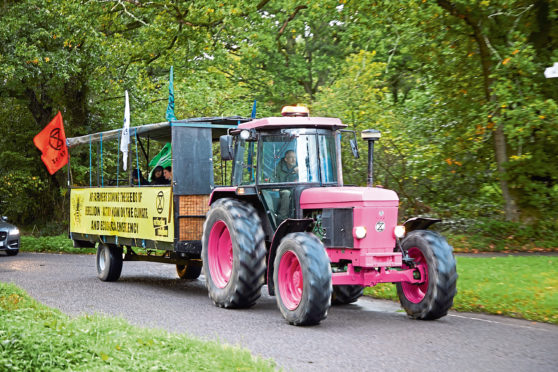A group of farmers from across the UK travelled to London in a pink tractor to join thousands of environmental protesters calling on the government to take action on climate change.
The group, called Extinction Rebellion Farmers, drove from Stockbridge in Hampshire to join Extinction Rebellion campaigners who have launched a two-week protest in London and other cities around the world.
Consisting of farmers from the length and breadth of the UK, the group says agriculture has faced some unfair criticism in the climate change debate, and it wants to show the work producers are doing to protect the environment.
As one of the industries most affected by climate change, they also want to call on the UK Government to take immediate action to help agriculture adopt climate-friendly farming practices.
Sheep farmer Sarah Shuffell, from Brecon, Powys, said farmers across the UK are already seeing the effects of climate change on their farms and, while many producers are already taking steps to reduce their farm’s environmental impact, there was not enough recognition of the work they are doing. She said: “Farmers are on the front line of climate change but we are also best-placed to act against it.
“We want to show there are already a lot of farmers who are doing a lot to mitigate climate change.”
Dagan James, who farms buffalo on his 500-acre farm near Winchester, said while the industry has made commitments to reaching net-zero emissions, the government needed to be doing more to help farmers reach those targets as quickly as possible.
He said taking part in the Extinction Rebellion protests would help show the wider public that farmers take the climate crisis seriously and that the industry could be part of the solution.
He added: “We know there are problems with greenhouse gas emissions in agriculture but we want to promote a positive message that farmers do have a positive role to play.
“Regenerative and alternative farming systems, including livestock production, have a really important place in rebuilding diversity and habitats, and we want government to acknowledge that.”
